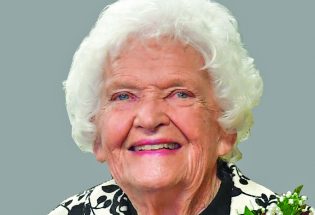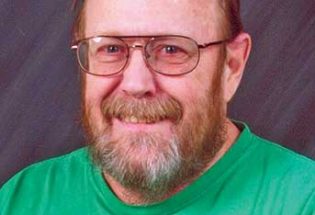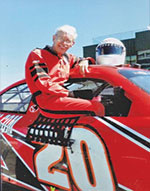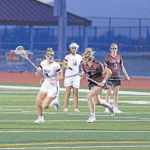Flores takes the stand admitting to murder
By Amber McIver-Traywick
The Surveyor
Berthoud resident Tanner Flores, 19, accused of killing his ex-girlfriend Ashley Doolittle, 18, on June 9, 2016, took the stand Monday afternoon during his trial at the Larimer County Justice Center in Fort Collins, admitting he did shoot and kill her.
Eighth Judicial District Judge Greg Lammons asked Flores to stand up at the podium and read him several statements regarding his right to speak on his own behalf or to decline to do so and that if he chose to do so he would be cross examined by the prosecution. The judge asked Flores if he understood after communicating each statement. To the surprise of many in the courtroom, Flores said he understood and he would take the stand.
Flores was on the stand for several hours, between walking through the events leading up to the murder, via questions from his defense, followed by the cross examination from the prosecution.
Flores stated that over a matter of days Doolittle had ended the relationship but then agreed to get back together, spending time with him helping him on his grandfather’s farm, running errands with him and going for a hike together near Estes Park just days before the murder. Flores stated, “one second she’s talking to me about getting married, then breaking up with me again.” Ultimately Flores said Doolittle told him she wanted to see other people after the two had met up at Lon Hagler Reservoir in Loveland on June 9 to discuss the status of their relationship.
Flores testified he had taken a gun that belonged to his father earlier in the day to shoot near Carter Lake in order to “clear” his head. The gun was still in the back of his truck when a few hours later he met with Doolittle.
The two left the parking area of Lon Hagler and drove to Carter Lake. During cross examination Flores’ statements previously were brought up that Doolittle had tried to get out of the truck at one point but he put the truck in motion so she couldn’t get out. Flores soon after had said he asked Doolittle what he could do, referring to getting back together. This angered Doolittle who then, according to Flores, glared at him and turned away. Flores reached back to the gun in the back seat and shot Doolittle in the head three times.
Multiple times during questioning Flores to varying degrees stated that during the shooting, “There was really no thought to it,” and “I didn’t really know what was happening…it all just happened really fast.” When Flores was asked by the defense if he had planned to shoot Doolittle his response was “no.”
Flores showed little emotion on the stand but paused often for extended periods of time, seeming to struggle to respond to the questions he was asked.
When questioned as to why he took the actions he took following the shooting, which involved driving Doolittle’s body nearly five hours away to Collbran, Colo., to the home of his deceased great-grandfather, Flores said, “I was in extreme shock and had been through something traumatic.”
Earlier in the day Jeff Doolittle, Ashley’s father, took the stand, briefly answering questions about the final phone calls he had between him and his daughter. The day the murder took place Doolittle had taken her car to a tire store in Loveland and their conversations revolved around what she needed to get there. The last call between the two happened at 2:41 p.m. on June 9, which Mr. Doolittle quietly said was “the last time I ever talked to her.”
The defense also called two of Flores’ friends as well as his uncle, grandfather, and Michael Kubicek, a criminal defense investigator who testified primarily concerning the cell phone towers and approximate locations to which both Flores’ and Doolittle’s phones were recorded as being connected.
Closing statements will be given on Tuesday, at which time the case will be placed in the hands of the eight men and five women on the jury. The defense has requested a lower included offense which will present a lesser conviction as a possibility to the jurors if they feel all of the criteria for the first-degree murder charges have not been proven by the evidence presented to them, which would result in a dramatically reduced sentence.
- December, 14 2017

Obituary – Marjorie Ann Foote K...
Marjorie Ann Foote Knievel, a longtime resident of Loveland and Berthoud died November 1, 2017...
- November, 04 2015

James Jackson Sanford: July 5, 1955 &...
James Jackson Sanford passed away peacefully on Oct. 11, 2015, at the Berthoud Living Center....
- January, 18 2024

Larimer County sets mill levy rate
By Will Cornelius The Surveyor The Board of Commissioners for Larimer County held a special...
- March, 23 2017

Norman Dave Roush: Nov. 24, 1943 R...
Norman Dave Roush, “Dave” as he was affectionately known, passed away peacefully, in the loving...
- January, 22 2015

On the air with Kolten Strait
Berthoud’s Kolten Strait gives a thumbs-up while broadcasting a wrestlingmatch at...
- June, 16 2016

Love Berthoud, shop local
Berthoud Local Farmers’ Market season kicks off in Fickel Park The Berthoud Local Farmers Market...

POLICEBLOTTER
Community News
Northern Water sets C-BT quota at 70% for 2024
Community News

Emotions run high during Revere Property hearing
Community News
Snowpack at 119% above normal
Community News

Karspeck to serve third term as Berthoud mayor
Community News

OPINION – No bitchin’ allowed
Community News
Roy Tripi to become principal of BHS on July 1
Community News
COMMUNITY CALENDAR:
Community Calendar – add an event
Homestead Fine Art Gallery First Fridays OPEN HOUSE
03 May 4:00 PM - 7:00 PM
Homestead Fine Art Gallery First Fridays OPEN HOUSE
07 Jun 4:00 PM - 7:00 PM
Homestead Fine Art Gallery First Fridays OPEN HOUSE
05 Jul 4:00 PM - 7:00 PM
Homestead Fine Art Gallery First Fridays OPEN HOUSE
02 Aug 4:00 PM - 7:00 PM
Homestead Fine Art Gallery First Fridays OPEN HOUSE
06 Sep 4:00 PM - 7:00 PM
Homestead Fine Art Gallery First Fridays OPEN HOUSE
04 Oct 4:00 PM - 7:00 PM

